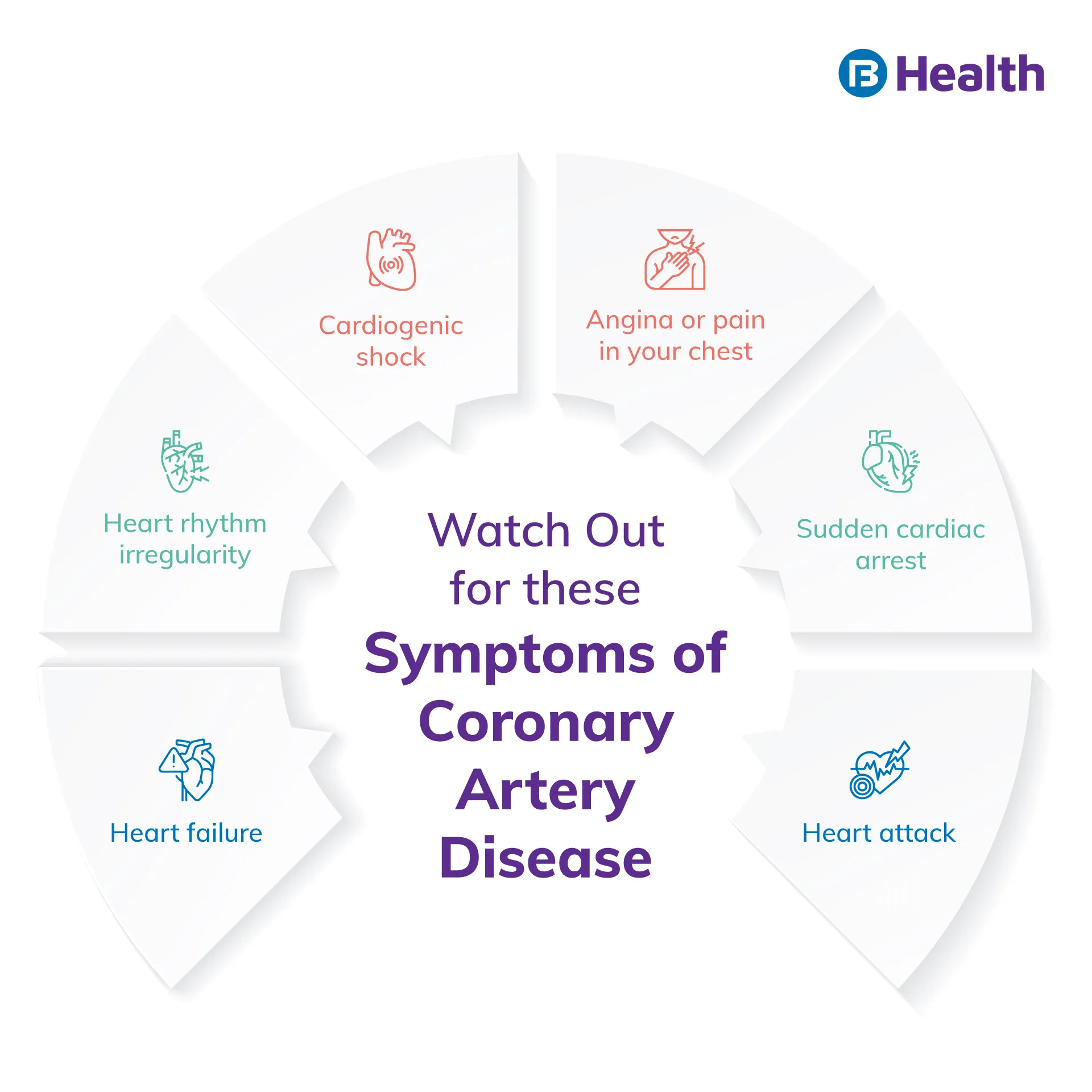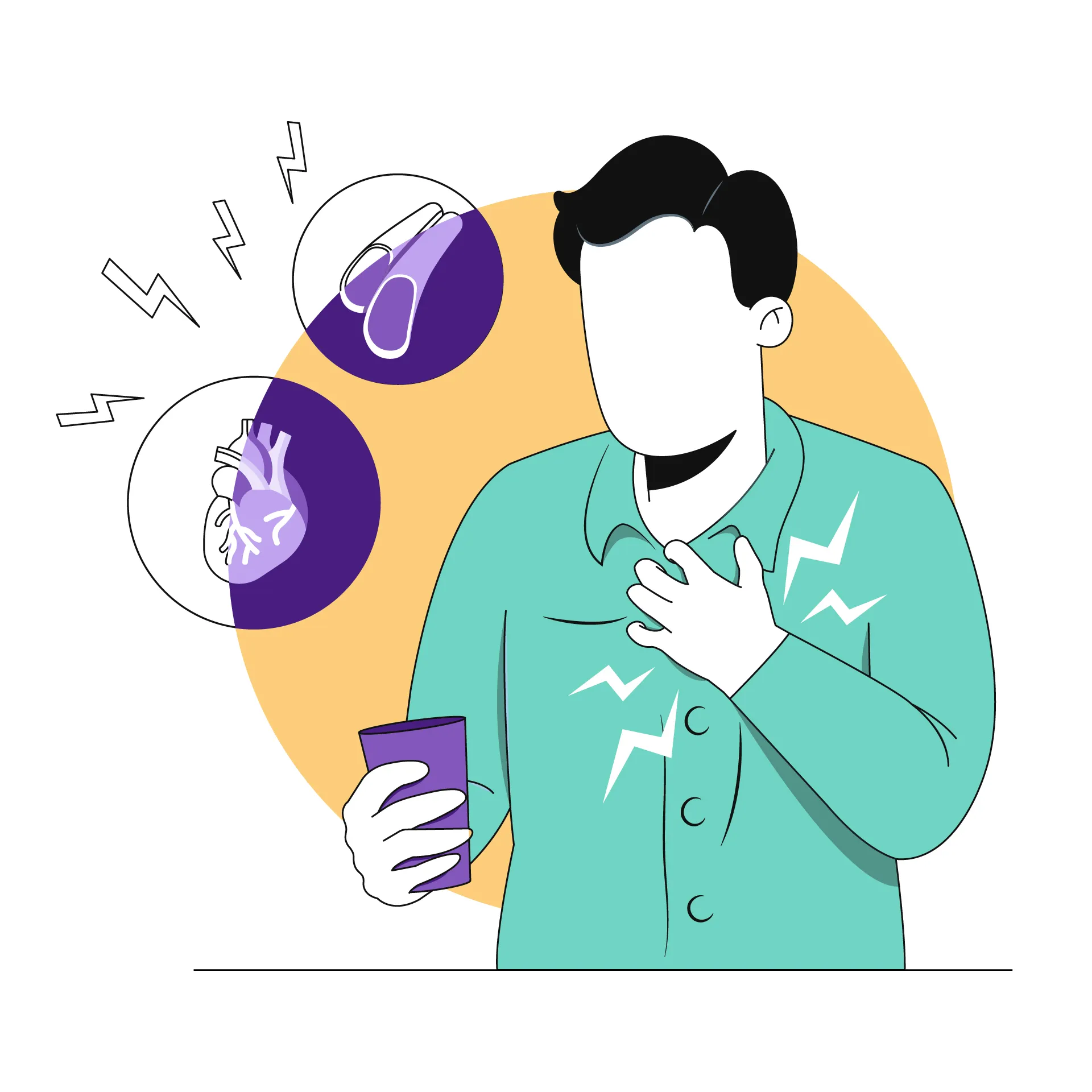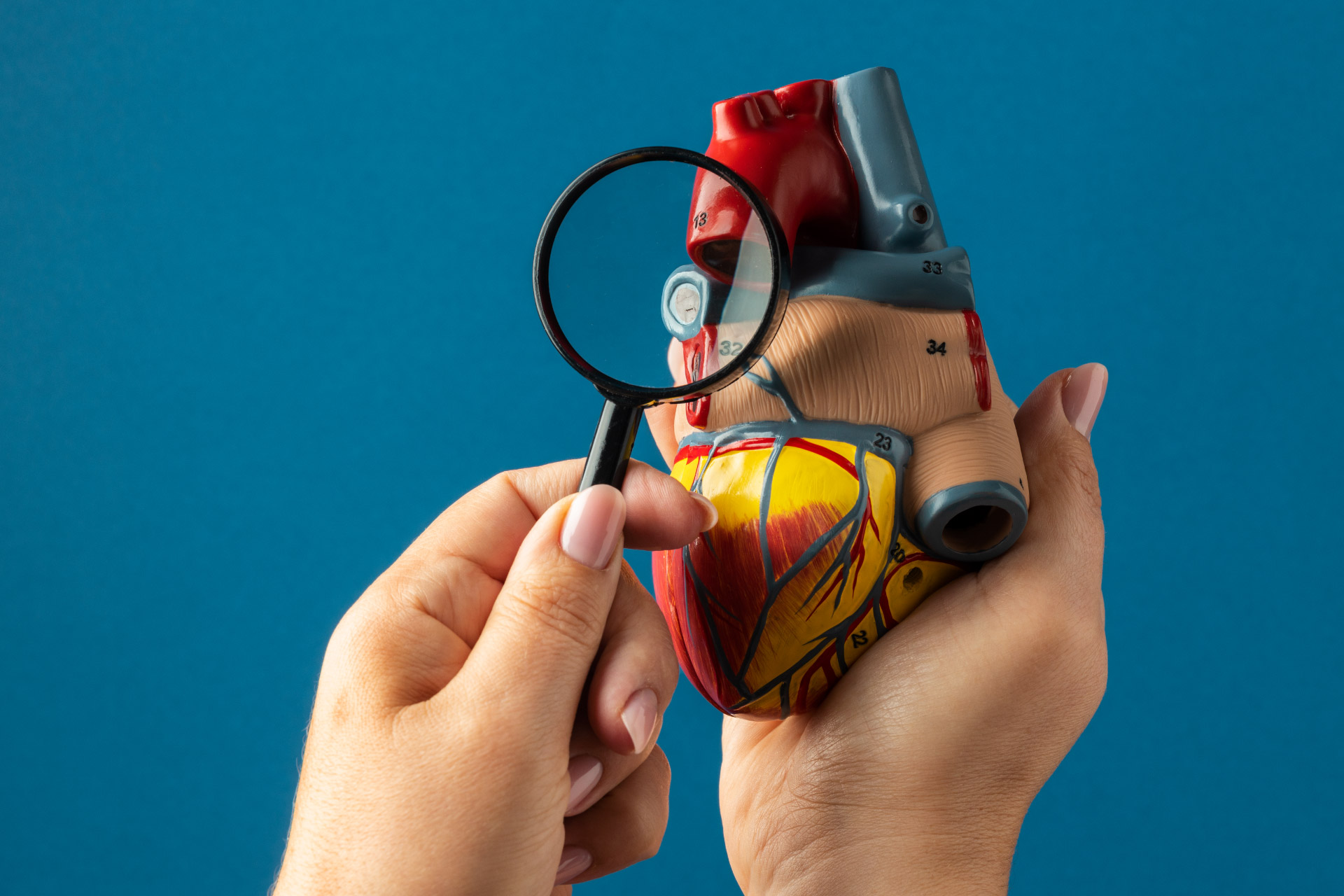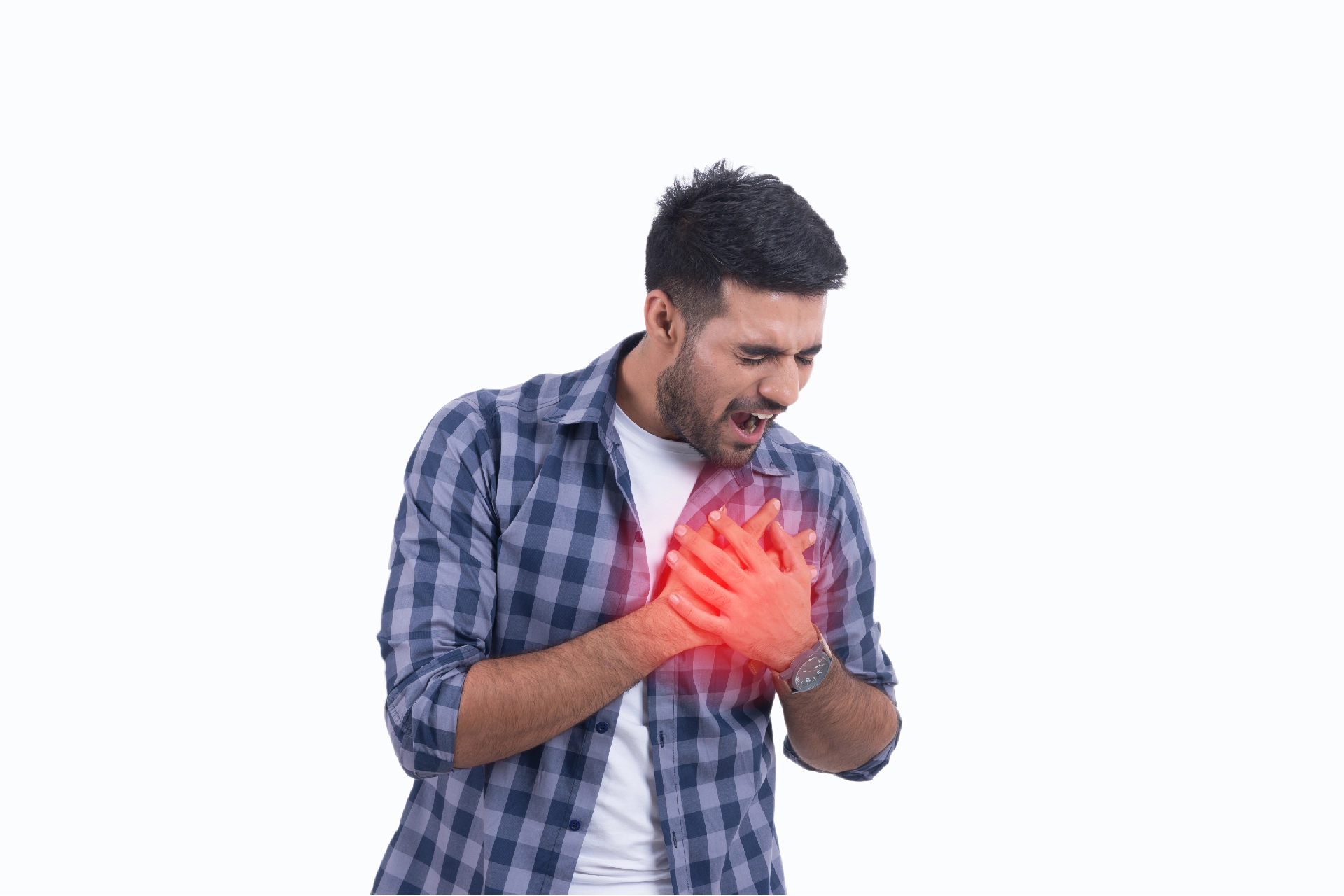Heart Health | 4 min read
Coronary Artery Disease: Its Symptoms and How to Treat Them
Medically reviewed by
Table of Content
Key Takeaways
- Arm and chest pain are some of the heart attack symptoms
- Coronary heart disease causes burning sensation in your chest
- Walk regularly and practice yoga for heart health improvement
Coronary artery disease occurs when your coronary arteries become narrow or are blocked by the buildup of plaque. Coronary arteries are blood vessels that supply blood, oxygen, and nutrients essential for your heart. When these arteries become narrow due to the buildup of fatty substances, it can lead to heart attack symptoms that can prove fatal. Coronary artery disease is also known as ischemic heart disease or coronary heart disease.
In India, the prevalence of coronary heart disease has ranged from 1% to 13.2% in the urban population over the past decades. In fact, ours is among the top countries with the highest number of cardiovascular diseases [1]. As per a study, ischemic heart disease and stroke contribute to the most CVD mortality cases in India [2]. There are certain treatments for such types of heart disease. Read on to know more!
Additional Read: How Smoking Affects HeartCoronary artery disease symptoms
You may not feel the symptoms initially as plaque build-up happens over the course of time. When your arteries become narrow, the heart pumps harder to circulate blood throughout the body and you may notice the following signs.
- Discomfort in your chest that include heaviness, aching or even tightness
- Constant burning sensation in your chest
- Feeling your chest muscles getting squeezed
- Arm or shoulder pain
- Inability to breathe properly
- Excessive sweating
- Dizziness
- Fatigue
- Nausea

Women may notice slightly different symptoms such as:
- Cold sweat
- Discomfort in your neck, back or abdomen
- Unexplained anxiety and stress
- Heartburn or indigestion
All these are heart attack symptoms that you need to address immediately. If left untreated, these can further damage your coronary arteries and lead to massive heart attacks.
Coronary artery disease causes
When the build-up of plaque damages the inner layers of a coronary artery, it results in this condition. This damage further results in the deposition of fatty substances in the injured area. These deposits include cholesterol and several inflammatory products from your cells. When this plaque ruptures, you can see a formation of platelets in the area for repairing the blood vessel. This reduces the flow of blood thereby causing a heart attack.
Be cautious about these coronary artery disease risk factors [3]:
- High LDL or bad cholesterol level
- High blood pressure
- Family history of heart disease
- Type 1 and type 2 diabetes
- Smoking
- Obesity
- Sedentary lifestyle
Coronary heart disease diagnosis
Unless it is an emergency like heart attack, your cardiologist will discuss your symptoms, review your medical history and assess your risk factors. After this, the doctor will perform a physical examination. Next, you may need to undergo different diagnostic tests.
- Echocardiogram: This test uses the principle of sound waves to determine the structure of your heart and its functioning.
- Exercise stress tests: This is a treadmill test that assesses the proper working of your heart under stressful conditions.
- Electrocardiograph tests: Using this test, you can determine the electrical activity of your heart.
- Cardiac catheterization: This technique uses small tubes that are inserted inside your heart’s blood vessels. This helps check the functioning of your heart.
- Coronary calcium scan: With this test, doctors can measure the quantity of calcium deposits in walls of your arteries.
- Blood tests: You may have to undergo these to determine the factors affecting your arteries. These tests check for levels of cholesterol, triglycerides, lipoproteins, glucose and more.
You may have to undergo certain imaging tests to check how well your heart is functioning. These tests include:
- Nuclear imaging
- CT angiogram
Coronary artery disease treatment
After diagnosis, your doctor may discuss the right treatment strategy for you. Follow a proper treatment plan so that you can reduce the risk of this condition and other heart ailments. Lifestyle modifications are the most important changes you need to make. These are a few tips you can follow:
- Avoid smoking
- Limit the consumption of alcohol
- Eat heart-healthy foods
- Exercise daily for at least 30 minutes
- Watch your cholesterol, blood pressure and sugar levels
You can also take medication to reduce your cholesterol, blood pressure and blood clots. Doctors may also use certain non-surgical procedures to reduce plaque build-up and blocks.
Additional Read: How To Quit SmokingA healthy lifestyle can lower the risk of coronary artery disease. Eat healthy fruits for heart like strawberries and blueberries, quit smoking, stay physically active, and perform yoga for heart health. As part of preventive care, book an online medical consultation on Bajaj Finserv Health. You can also book a test for heart disease on the platform and keep your health under check.
References
- https://www.ncbi.nlm.nih.gov/pmc/articles/PMC3408699/#:~:text=The%20annual%20number%20of%20deaths,in%20urban%20populations%20(2).
- https://www.ahajournals.org/doi/full/10.1161/CIRCULATIONAHA.114.008729#:~:text=Ischemic%20heart%20disease%20(IHD)%20and,being%20predominant%20(Figure%202).
- https://my.clevelandclinic.org/health/diseases/16898-coronary-artery-disease#:~:text=Coronary%20artery%20disease%20is%20the,discomfort%20and%20shortness%20of%20breath.
Disclaimer
Please note that this article is solely meant for informational purposes and Bajaj Finserv Health Limited (“BFHL”) does not shoulder any responsibility of the views/advice/information expressed/given by the writer/reviewer/originator. This article should not be considered as a substitute for any medical advice, diagnosis or treatment. Always consult with your trusted physician/qualified healthcare professional to evaluate your medical condition. The above article has been reviewed by a qualified doctor and BFHL is not responsible for any damages for any information or services provided by any third party.






